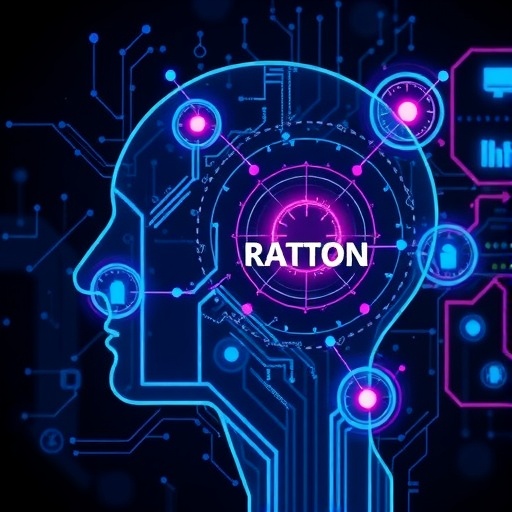In a transformative exploration published in the ECNU Review of Education, scholars from the University of Kansas – Yong Zhao, Neal Kingston, and Rick Ginsberg – present a compelling argument that educational research as traditionally practiced is nearing an existential impasse. Their article, Death and Rebirth of Research in Education in the Age of AI: Problems and Promises, critiques longstanding structural issues within the field and beckons a profound rethinking of how educational inquiry should evolve amidst the rapid advance of artificial intelligence (AI).
Despite the staggering volume of educational studies released each year—estimated at over 140,000 articles—the impact of this research on both educational policy and classroom practice remains disappointingly marginal. The authors diagnose this disconnect as stemming from systemic flaws embedded in the research apparatus. These include a peer review process riddled with bias and conservatism, an overreliance on statistical quantification at the expense of substantive insights, and entrenched theoretical battles often described as “paradigm wars” between qualitative and quantitative methodologies. Moreover, the tendency to generalize findings across heterogeneous educational contexts undermines relevance and applicability.
The article brings to light how certain enduring blind spots further restrain educational research from influencing change on the ground. Notably, the widespread neglect of learner individuality and diversity hampers nuanced understanding. The authors also highlight a constrained educational imagination, where a narrow fixation on standardized test outcomes dominates at the expense of broader developmental goals. This reductionist lens limits the scope of research questions and thus, the transformative potential of scholarly inquiry.
As AI technologies such as generative models and adaptive learning platforms mature with astonishing speed, the traditional foundations of educational research face heightened turbulence. The field has historically relied on the assumption of relatively stable “treatments,” clear cause-effect relationships, and a primarily human-centered approach to cognition and learning. These assumptions are destabilized by AI’s disruptive character. Research paradigms designed for linear causality stumble when confronted with complex, iterative, and emergent AI-human interactions that dynamicize the learning environment.
One particularly acute challenge arises from the sheer speed at which AI developments outpace the deliberative academic publication cycle. Research findings that take months or years to disseminate may already be obsolete by the time they reach policymakers or practitioners. This temporal lag calls for reengineered methodologies that can accommodate rapid iteration and real-time feedback loops, allowing educational research to remain relevant in a continuously evolving AI-influenced landscape.
However, the authors do not merely highlight challenges; they also illuminate promising avenues for the rebirth of educational research. AI offers unprecedented capabilities for participatory research designs, where stakeholders including learners and educators are co-creators of knowledge. Systems-oriented approaches that consider distributed cognition and networked learning interactions become feasible at scale, opening new windows into the complexity of educational ecosystems.
Central to this renewal is what Yong Zhao terms an “epistemological rebirth.” This concept urges scholars to rethink not only research techniques but also the foundational questions about the purpose of education itself in an era where machines can surpass human cognitive functions in many domains. The implication is profound: educational research can no longer be confined to optimizing extant methods but must innovate new frameworks that capture the intertwined human and artificial intelligences shaping learning trajectories.
The article advocates methodological pluralism that embraces complexity-informed research and futures-oriented perspectives. Ethical vigilance, particularly concerning equity and inclusiveness in AI-enhanced education, is stressed as essential. The authors argue that responsible research must foreground human–AI collaboration dynamics, ensuring that educational benefits are distributed fairly and that technological advances do not exacerbate existing disparities.
Such innovation demands breaking free from reductionist metrics and standardization paradigms toward holistic inquiry modes. The future-oriented stance involves anticipating how emerging AI tools and educational contexts might unfold, allowing research to inform adaptive, resilient educational policies that can thrive amidst uncertainty and rapid change.
This scholarship contributes significantly to the international discourse on education’s necessary transformation in the face of AI-driven upheavals. By articulating a critical diagnosis of existing research limitations and proposing a visionary agenda for reinvention, the article calls for an urgent collective effort to reimagine the epistemologies, methodologies, and ethical frameworks guiding education research globally.
In summary, the work by Zhao, Kingston, and Ginsberg issues a clarion call: educational research must undergo a fundamental metamorphosis to remain meaningful and impactful in the age of artificial intelligence. It must transcend old paradigms and pioneer new approaches that not only leverage AI’s potential but also critically engage with its challenges, championing equity, creativity, and human flourishing in learning.
This outlook signals a pivotal moment for education scholars, policymakers, and practitioners to collaborate and embrace an expansive vision of knowledge creation—one that harnesses AI as a catalyst to rethink deeply what it means to educate and learn in the 21st century and beyond.
Subject of Research: Not applicable
Article Title: Death and Rebirth of Research in Education in the Age of AI: Problems and Promises
News Publication Date: 19-Aug-2025
Web References:
https://journals.sagepub.com/doi/10.1177/20965311251367053
http://dx.doi.org/10.1177/20965311251367053
References:
Zhao, Y., Kingston, N., & Ginsberg, R. (2025). Death and Rebirth of Research in Education in the Age of AI: Problems and Promises. ECNU Review of Education. DOI: 10.1177/20965311251367053
Keywords:
Education technology, Education, Education administration, Educational assessment, Educational attainment, Educational levels, Educational facilities, Educational methods, Education research, Generative AI




